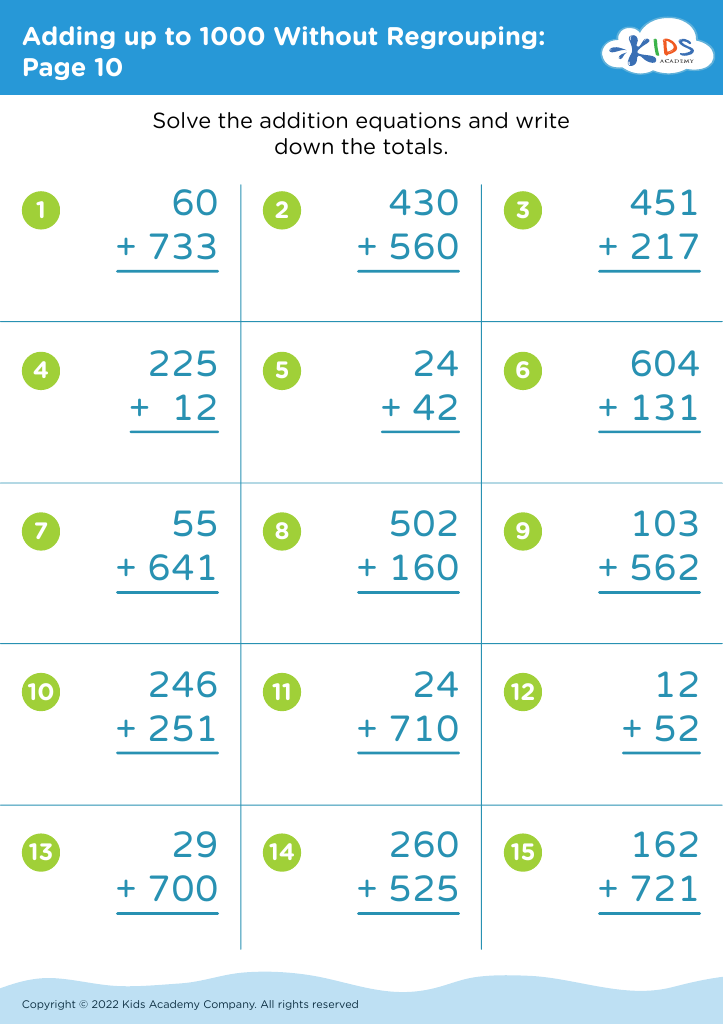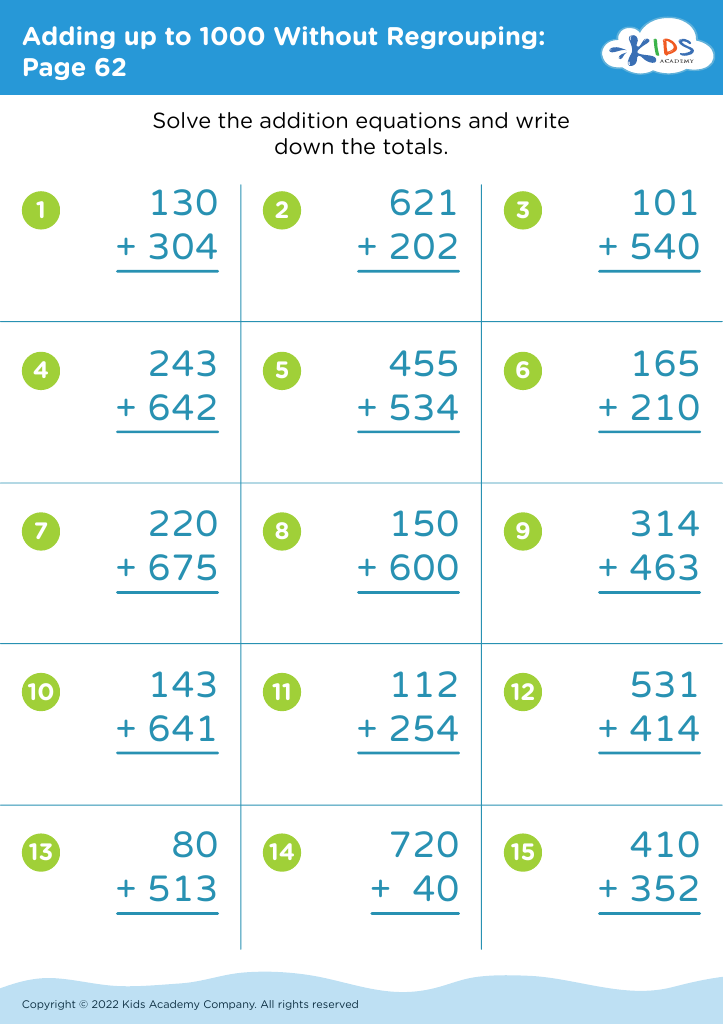Basic Math Skills Adding up to 1000 Without Regrouping Worksheets for Ages 4-8
3 filtered results
-
From - To
Unlock your child’s mathematical potential with our "Basic Math Skills: Adding Up to 1000 Without Regrouping Worksheets." Designed specifically for ages 4-8, these engaging worksheets make learning addition fun and accessible. Your little ones will practice fundamental skills through colorful and interactive activities that reinforce their understanding of simple addition, helping build confidence in early math concepts. Each worksheet encourages independent problem-solving and critical thinking while preparing children for more advanced math challenges. Perfect for home or classroom use, these resources are ideal for nurturing a love of math from an early age. Begin your child’s journey to success today!
Basic math skills, especially the ability to add up to 1000 without regrouping, are foundational for children aged 4-8. Developing these skills helps foster critical cognitive abilities, including problem-solving and logical reasoning. Understanding how to combine numbers in a straightforward manner lays the groundwork for more advanced math concepts. When children are comfortable working with numbers, they also build confidence in their mathematical abilities, which can carry over to other academic areas.
Additionally, mastering this skill enhances mental math proficiency, aiding in everyday scenarios like shopping or meal planning. Skills acquired through practice can be transferred to decoding complex situations, thus improving a child's overall analytical capabilities.
Parents and teachers play a crucial role in this developmental stage. By emphasizing the importance of basic math, they can create a supportive environment where children feel encouraged to explore and engage with numbers. Introducing engaging and interactive activities makes learning enjoyable, helping to maintain motivation. As children succeed in these early math skills, they set a strong foundation for their future education, ensuring they are better prepared to tackle higher-level math problems and real-world applications later on. Ultimately, investing time in basic math skills cultivates both competence and confidence in young learners.















